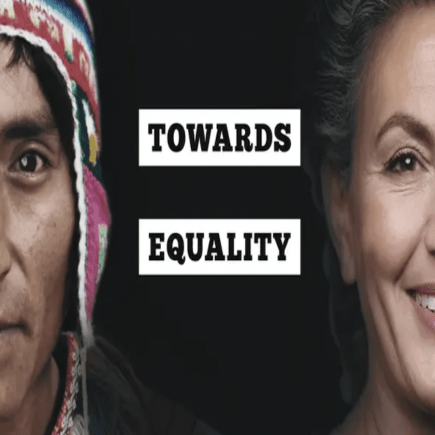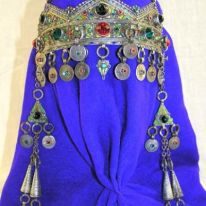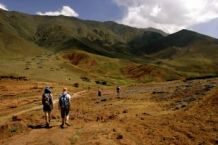
Morocco has launched a training program to encourage management and marketing of solar ovens and cooking devices to encourage women in rural areas to start up their own cooperatives. The goal is to have these women achieve climate-resilient development and to promote gender equality. The aim of the Frederick Project (acronym in French, Argan and Rural Women Engaged for Inclusive Economic Development and Climate) is to build a more green, sustainable world by enabling women to enhance their income and living situation.
According to the Intergovernmental Panel on Climate Change (IPCC) each citizen has an average of 600 cubic meters of water per year, four times less than in the 60s. Hence, the importance of implementing innovative measures to facilitate energy transition, particularly for rural areas and the inclusion of women.
Morocco launches training program to encourage management and marketing of solar ovens and cooking devices for women in rural areas.
The project that was launched locally in 2019 is led by Women Engage for a Common Future (WECF, an international network of women’s and environmental organizations) and its local partners; Association for Renewable Energy and Sustainable Development (AERDD), Mohammed VI Foundation for Research and Conservation of Organic Trees (a local endemic tree and the most abundant in Morocco) and REMESS (Moroccan Network for Social Solidarity).
Developing a local sector of renewable energy by making simple and economical solar solutions such as cooking devices, dryers, and ovens through women-led energy cooperatives is the goal. International organizations such as the United Nations are aware that women are most vulnerable to the damaging effects of climate change, but they are often set aside in the response to this vital challenge.
As a sustainable alternative, these cooking devices contribute to women’s participation and recognition in energy transition, the program’s founders explain. They rely on the economic, social, and environmental role of these women, who are working actively in agricultural and Argan cooperatives and use ancestral, environmentally friendly technologies. This is an important change needed in a country like Morocco, where wood and Butane gas are traditionally used for cooking particularly in the rural areas, despite their negative effect on both people’s health and environment.
The three-year project required 1 million (£720,000), of which $452,000 was invested by the French Development Agency (AFD). The remaining funds are provided by the French Ecological Transition Agency (ADEME) and the Foundation of France.
The project anticipates raising awareness among 600 women about the advantages of the energy transition and green tech through meetings and workshops. Including 40 cooperatives’ directors will enable the production of simple and echo-friendly solutions to agriculture and argan oil productions. It will also enable women to start fish farming in the region of Northern Morocco within the cities of Tangier and Tetouan along with the Souss-Massa Draa region. The latter has been hit hard by climate change, but it has an exceptional rate of more than 300 days of sunshine per year. By the time the program will end, 40 young women technicians will be trained in solar thermal technologies.
The best candidates selected will receive the financial support to create their own energy cooperatives. They will also have access to a capacity-building program on management and sustainable production, dedicated to rural businesses.
If the project started in 2019, the first training session for the manufacture of solar cookers would not have started in late 2020 led with the French company Four Solar Development (FSD) and the National Institute of Solar Energy (INES). “Despite the health crisis and the adaptations required to set it up, the trainers and partners from FSD and INES travelled to both regions. The training consisted of preparing, cutting, and assembling the cookers, but also understanding the issues related to green, solar energy and its use for cooking and processing food products,” INES officials say.
In the northern areas of Tangier-Tetouan, 18 young technicians’ women were trained in these sessions. In the south of Morocco, this first phase targeted trainers from the Office of Vocational Training and Work Promotion (OFPPT), which will be responsible for training in turn 20 young women. “Enthusiasm and good humor were on the agenda for this successful week, which resulted in the manufacture of a dozen cookers and a demonstration session of their use with jams, meat, and tagines cooking,” the WECF says. The second phase started in March and April 2020 in both regions, teaching another group of rural women manufacturing solar cookers. They have learnt how to build, cut and assemble cookers, in addition to theoretical techniques, the founders of the project explain.
Following both sessions, 10 technicians’ women out of the 40 who were trained in the target region will become “solar ambassadors”. This selection will be based on “the young women’s feedback on their training and motivation to pursue the project, and on their results on the theory exam.” They will after be further supported to start up their own energy cooperatives and promote their locally created solutions. A vital challenge for these women whose contribution could help their regions’ sustainable development policy.





